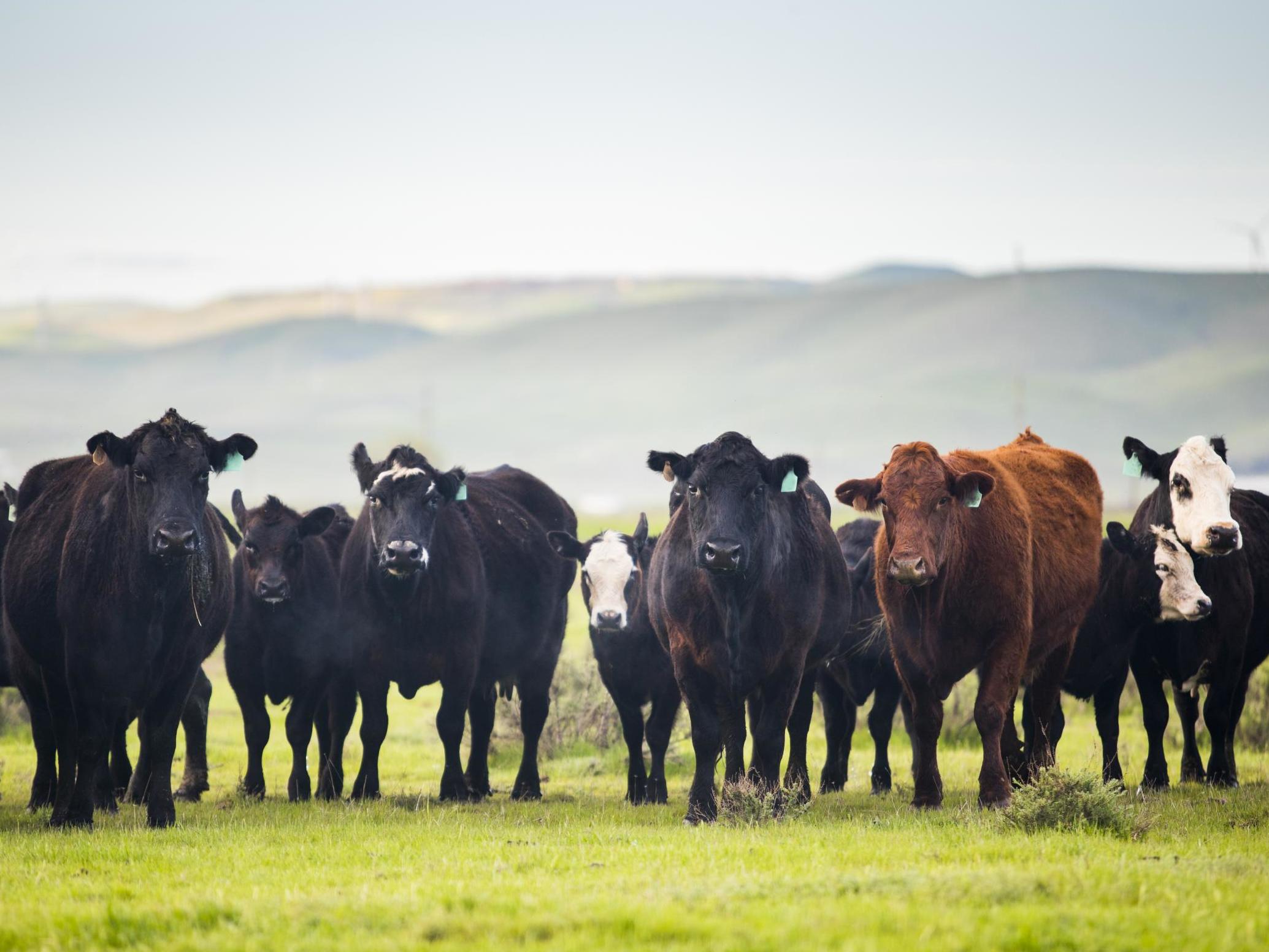Lab grown meat could cause more environmental damage than the real thing, scientists warn
Carbon dioxide from energy used to make cultured meat likely to be more damaging in long term than methane from cattle, modelling suggests

Your support helps us to tell the story
From reproductive rights to climate change to Big Tech, The Independent is on the ground when the story is developing. Whether it's investigating the financials of Elon Musk's pro-Trump PAC or producing our latest documentary, 'The A Word', which shines a light on the American women fighting for reproductive rights, we know how important it is to parse out the facts from the messaging.
At such a critical moment in US history, we need reporters on the ground. Your donation allows us to keep sending journalists to speak to both sides of the story.
The Independent is trusted by Americans across the entire political spectrum. And unlike many other quality news outlets, we choose not to lock Americans out of our reporting and analysis with paywalls. We believe quality journalism should be available to everyone, paid for by those who can afford it.
Your support makes all the difference.Artificially-grown beef could generate longer-lasting and more damaging greenhouse gases than rearing cattle normally, according a new scientific study.
Agriculture accounts for around a quarter of all greenhouse gas emissions driving up global temperatures.
Cattle, which produce significant quantities of methane and nitrous oxide, are among the biggest contributors.
The demand for beef has also seen vast tracts of land turned into grazing pastures, many of which have to be fertilised with nitrogen-based products, which are also a major source of greenhouse gases.
One touted solution to reducing the environmental impact of beef production is the production of artificially-grown meat. Several companies are developing lab-grown beef, pork, poultry and seafood.
But while a move to this means of production could reduce methane levels from beef herds quickly, the new research, published in the journal Frontiers in Sustainable Food Systems suggests over a longer time frame, production of lab-grown meat could generate greater concentrations of damaging CO2.
While methane remains in the atmosphere for around 12 years, CO2 accumulates for millenia.
The study suggests the environmental benefits of large scale production of artificial meat hinge on the means of power generation used to make the artificial product in the factories.
The scientists from the Oxford Martin School said they found cultured meat was not necessarily “climatically superior to cattle”, adding: “Its relative impact instead depends on the availability of decarbonised energy generation and the specific production systems that are realised.”
They reached their conclusion after examining the various possible production methods for cultured meat and their energy demands.
They also used three possible meat “consumption pathways” to predict how human demands for beef may fluctuate and change over then next 1,000 years.
Finally they used climate modelling to estimate how different outputs of each of the three greenhouse gases mentioned above - CO2, methane and nitrous oxide - may affect global temperatures year on year if they increased or decreased, depending on meat consumption and production methods.
The researchers concluded only in the most optimistic scenarios was the impact of lab-grown meat less harmful than cattle-rearing.
“In the most optimistic cultured meat production footprints, emissions are competitive with cattle systems for CO2 while avoiding the other gases: this is unambiguously superior from a climate perspective,” they said.
But they added: “For the most conservative cultured meat footprint used here, which still had a lower carbon dioxide equivalent footprint than any cattle system in the study, the long-term temperature impact of production is dramatically worse than any cattle system.”
They said this was largely due to the long-term damage caused by carbon dioxide remaining in the atmosphere.
Although they recognised a shift towards renewable low-carbon energy sources is underway in many countries, they said: “The magnitude of energy required is such that sufficient decarbonised energy generation appears unlikely in the near to medium term.”
The demand for beef is growing across the world, with particular growth in Asia where numerous emerging economies and growing household incomes have driven up demand to account for almost 50 per cent of total global beef imports, according to the UK’s Agriculture and Horticulture Development Board.
Join our commenting forum
Join thought-provoking conversations, follow other Independent readers and see their replies
Comments